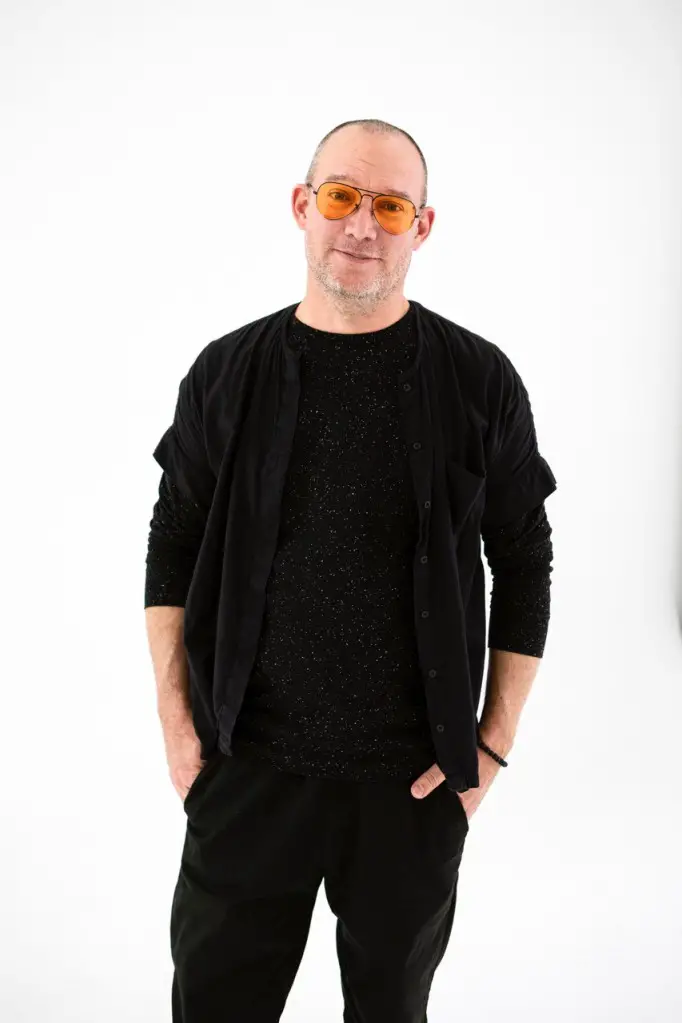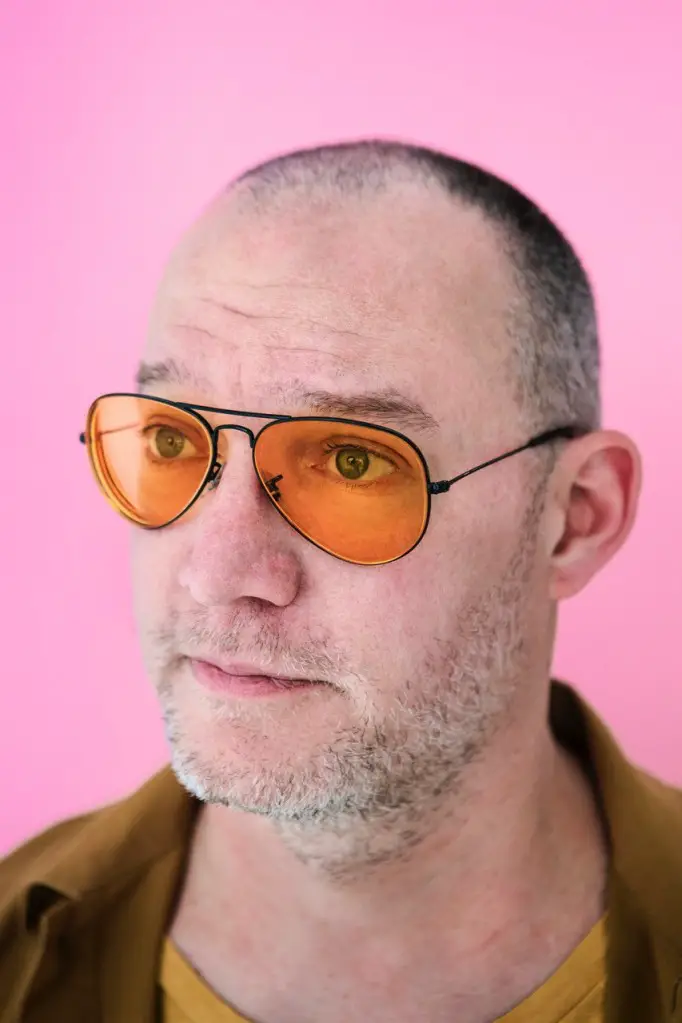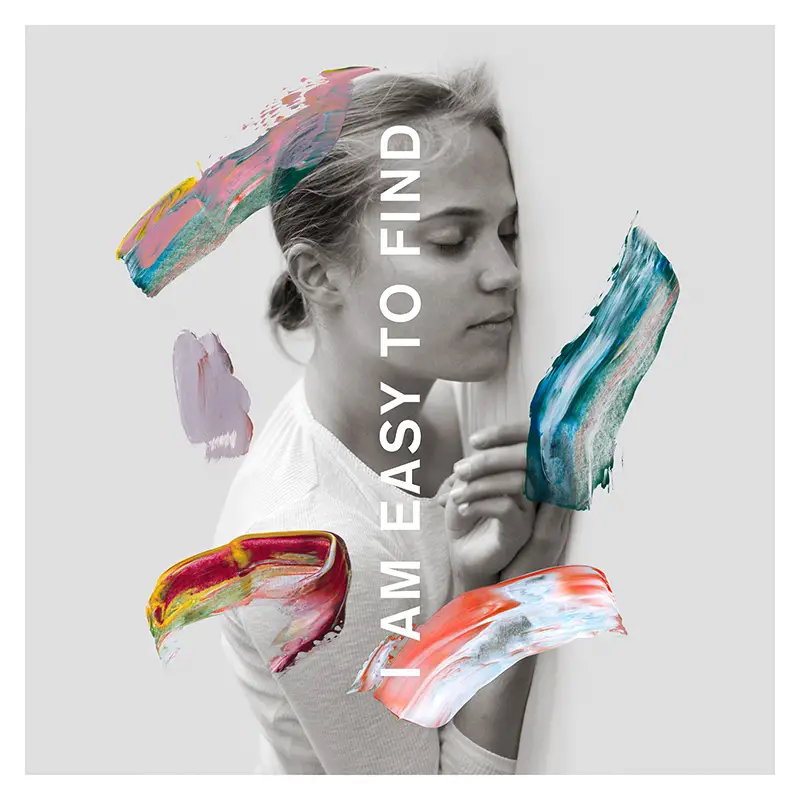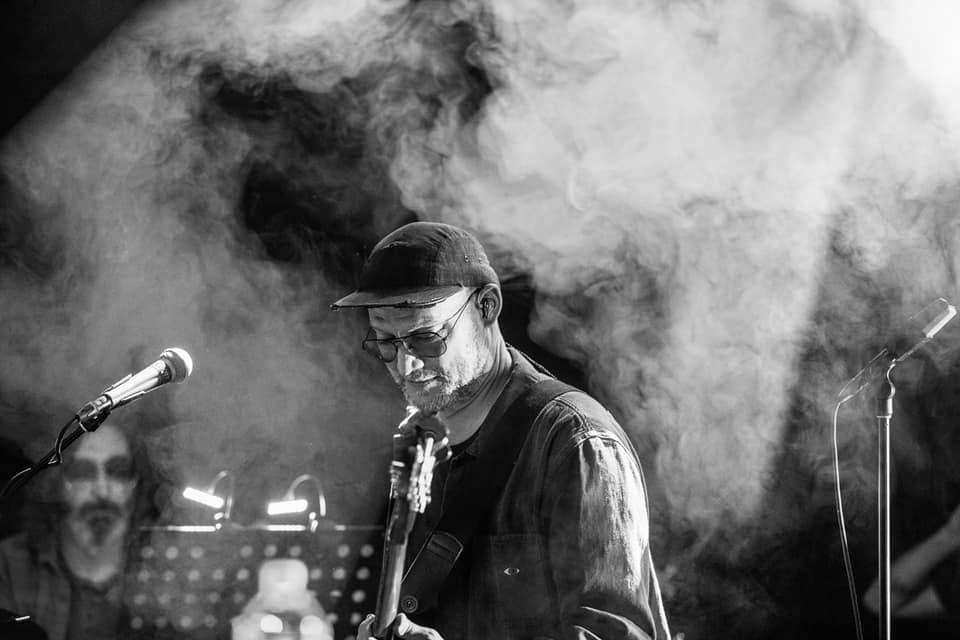All images courtesy of Scott Devendorf

Scott Devendorf is the longtime bassist of Indie Rock band, The National, as well as a member of LNZNDRF. Speaking of LNZNDRF, they’ve got a new album out, which you check out here.
On a personal note, for me, this is a very cool interview. The National is an NYC-based band, and watching them slowly rise to fame over the years has been wonderful to watch. I have to credit Tim Clair, the owner of one of my favorite Long Island record shops, Record Reserve. Like myself, Scott also frequents Tim’s shop, and if not for Tim, I may not have had the opportunity to speak with Scott. So, if you’re on Long Island, definitely visit Tim and Record Reserve. You can check out their Instagram here.
So, I’ve got an interview with Scott Devendorf for you all to enjoy today. We cover Scott’s early musical origins, LNZNDRF’s new record II, the early days of The National, the recording of I Am Easy To Find, some of Scott’s favorite music, and much more. If you would like to learn more about The National, you can head to the band’s website here. Once you’ve done that, check out this interview with Scott. Cheers.
Andrew:
Scott, thank you for taking the time to speak with us. It’s been a weird year. How are you holding up?
Scott:
It certainly has been a year. Lots of uncertainty, fear, and general anxiety. Mainly, I’ve been trying to stay at home and with my family. Working on what we can, and trying to appreciate the time that this whole pandemic has imposed on everyone. Our work (music, touring) has completely shut down for over a year – our last show was in December 2019. The band has spent some time raising funds for our touring crew, who would have normally been working all of 2020 with us. I’m grateful we were successful in helping them out. Makes these times a little easier. Everyone is looking forward to things turning a corner in 2021 / 2022 – we’re hoping to return to working together.
Andrew:
Tell us about your backstory. How did you get into music? What was the gateway so to speak?
Scott:
My parents got both my brother and me into playing music (Suzuki violin method) at an early age. My mom also played acoustic guitar and my dad some bugle, mainly to wake us up in the morning. We played in the school orchestra and my brother also played handbells at church. We got interested in guitar (me) and drums (my brother Bryan) in middle school and played together in a high school band with our friend Mike Farr. Some covers and originals – influences included: Led Zeppelin, Red Hot Chili Peppers, U2, The Stone Roses, The Police, and The Cure, and we also liked skate punk music of the 80s (Minor Threat, Dead Milkmen, Dead Kennedys, Bad Brains, JFA, Ramones)
Andrew:
As an artist, who were some of your earliest and more important influences? Specifically, what was the event that led you to pick up the bass?
Scott:
Early influences (see above), but my brother and I really like U2’s “Under A Blood Red Sky” and the first Stone Roses record, especially “I Want to Be Adored.” I played electric guitar mostly until the early days of The National when I picked up the bass guitar – I’ll credit Aaron Dessner here for being one early bass influence, as we were writing and playing those songs together. Otherwise, I love the bass playing of Adam Clayton, Peter Hook, Phil Lesh, and Aston Barrett.

Andrew:
Let’s talk about LNZNDRF’s 2021 record II. You guys are on a roll lately, having released To a Lake in 2020 and your debut LNZNDRF in 2016. So, with this new record, what can the fans expect? Tell us about the recording and inspiration.
Scott:
All of the LNZNDRF recordings are based initially on improvisations that we capture in the studio. No one formally presents a song or idea before we attempt it. We spend a lot of time listening through the ideas, choosing favorites, and then Ben Lanz makes edits and more production decisions. We usually get together to mix and add additional pieces (like lyrics and vocals) much later in the process. Both LPs, LNZNDRF and II, were made this way – the songs for the To A Lake EP were from the same sessions as II. The big difference between the two LPs was that we included Aaron Arntz, who originally helped us as a live member when we briefly toured the first record in the studio recordings – which expanded our sonic palette immensely. Otherwise, we recorded just after finishing a bunch of touring with The National, so I think everyone was in good shape playing-wise and eager to make new explorations. The studio (Public Hi-Fi, Austin TX) was also a great place to record, and our friend and audio engineer Bella Blasko really helped us make the most of it.
Andrew:
More on your new record. Let’s dig into the songwriting a bit. How do your compositions come together? Lyrically, where are these songs rooted? Are the lyrics intensely personal, or are you merely telling stories?
Scott:
As I mentioned, the songs are initially all improvisations that we later edit into shorter pieces. Ben does most of the editing once we’ve all identified our favorite pieces. Along the way, these smaller nuggets reveal themselves to either be more lyrical or more instrumental songs. Ben writes most of the lyrics, with some contributions from the rest of us. On the recent record, the songs tend to have a larger influence from the natural world/earth (Cascade, Chicxulub, The Xeric Steppe). However, there are also more personal songs like “You Still Rip” about the long-term love and adoration of your partner.
Andrew:
How about the production side of things? Do you self-produce, or do you bring in outside voices to try and hone your sound? What goes into the decision either way?
Scott:
All of the production is our own. Ben Lanz is at the helm, and he is a very generous captain – he listens to all of us sailors. We do enjoy working with collaborators too. On II, we were excited to work with Mélissa Laveaux and also Brent Holloman, and Ben Mabry of Beta Radio.
Andrew:
With this new record, how do you feel you’ve progressed musically? What type of outlet does LNZNDRF provide for the band members outside of their other projects?
Scott:
While our process is similar to the first LP, the new sonics with Aaron Arntz and the fact that we’ve just played more, both together and with other groups, helps move the band forward. Mostly LNZNDRF is a space for us to explore more long-format instrumental jams than we might not do within our other projects.

Andrew:
Speaking of other projects, you’re the longtime bassist of The National. For those that don’t know, how did The National come together?
Scott:
Yes, indeed. We formed The National in 1999 in Brooklyn after all of us had arrived in NY in the mid-90s for work, school, etc. We had all known each other since middle school (Bryan, Aaron, Bryce, and I) and college (where Matt and I met and were classmates at UC’s DAAP Program, Graphic Design). We’d all played in various bands together and generally enjoyed many shared musical influences and experiences. Initially, we just got together after work at Matt’s apartment/loft space to try and make music for fun, as it was a good place to do that.
Andrew:
The National has been around for over 20 years now, right? You’ve slowly gained a substantial following. What has the experience been like over the last 20-plus years?
Scott:
It has been a fun, long, slow build over that time. Initially, after we formed the band in Brooklyn and began writing and recording, it took us a few years to get anywhere. We were all working day jobs and making music and eventually doing some shows and touring when we could. Then, returning to work until we could plot our next weekend, or week-long, adventure. We weren’t really able to commit to the band as the idea of a full-time venture until around 2005 when Beggars Banquet picked up our 3rd record. From there, things began to move forward for us, but it still took 15 years of touring and recording to make music our career. I guess we were pretty committed or delusional at times. Probably both.
Andrew:
Some of the group’s more well-known albums are Alligator, Boxer, and Sleep Well Beast, but I’d like to focus on I Am Easy to Find. This was my entryway into The National, and I am going back from there. What are your feelings on this record? How has The National evolved compared to your earlier records?
Scott:
I Am Easy To Find is one of our most ambitious records in that it involved so many collaborators, singers, and even a choir (Brooklyn Youth Chorus). Some of the songs initially came out of the sessions for Sleep Well Beast, but most were new songs. We’d finished touring Sleep Well Beast and almost immediately got back into the studio to work on it, partly because Mike Mills (film director and eventually producer of I Am Easy To Find) was really excited about a short film he was working on that included a lot of fragments of the songs that would end up on the record. Things progressed rather quickly with Mike in the studio, but it was a project that involved pulling in a lot of people and performances from different geographic locations at once. Aaron, Bryce, and Mike worked hard to get things together – the production, while fun, was a bit complicated and stressful. And once finished, we all had to figure out how to perform the songs and what the touring lineup would be. It was a big evolution in some ways for the band due to the intensive collaboration and the expanded touring unit. We all definitely learned a lot from the experience.

Andrew:
The National’s last album was the aforementioned I Am Easy to Find in 2019. Anything new on the horizon for the band? Are you fully focused on LNZNDRF right now?
Scott:
Everyone’s been basically isolated for a large part of 2020 and now 2021 – but we’re always working on and sharing ideas amongst ourselves. Luckily we’ve all been “working remotely” for many years since we all live in different places, so file sharing and remote collaboration aren’t new to us. Of course, it’s way more fun and dynamic to get together and play music in a room, so with the hope of vaccines and things turning the corner public health-wise, we are making loose plans to get together and work sometime in 2021. It’s been almost 3 years since we put out an album, so we’re behind schedule!
Andrew:
Shifting gears now. How about the state of the music business these days? Where are things at? What would you like to see change?
Scott:
Well, a large part of the business and the part we’re most directly involved with (touring) has been shut down for over a year. Obviously, this is the most urgent as far as getting our crew back to work and ourselves. But having the break has given everyone a lot of time to consider what’s working and what isn’t. My general hope would be more equality, inclusion, fairness, and kindness in the business. Historically, it doesn’t have a good reputation for, basically, any of that. If there’s anything we can directly affect, it’s how we treat each other, our crew, and our team and hopefully set an example of how things could improve.
Andrew:
What are your thoughts on social media in relation to artistry? It seems all-encompassing at times. Artists aren’t just artists anymore. They’re their own PR people too. Does it help or hinder?
Scott:
When we started our band, there wasn’t the internet and social media that exists today. Still, we basically grew up with it, and over time benefitted from the technology, allowing more people to discover more bands and music. It seems overwhelming at times, as more and more people engage with it. Overall though, it’s 100x easier to establish a presence as an artist, but there’s also 1000x more noise to breakthrough. My only advice is to try and have a unique vision and voice and stick to making that your guiding light. Honest vision and expression are always welcome.
Andrew:
I want to touch on FM radio. There was a time when FM radio was king and paramount to an artist’s commercial viability, but with the advent of file sharing and streaming, FM radio is not as influential as it once was. Are you still into the radio? As an artist, is it still meaningful to you?
Scott:
Most modern radio has been flattened to a very limited playlist, no matter where you are. So in that way, I’m less into radio in the traditional sense. I’m most into internet-based radio, like NTS.live, and also the ability to find and seek out unique, hyperlocal, or genre-specific stations. Radio does still mean something as musicians – it’s still exciting to hear our songs on mainstream radio, but then again, we’ve never had a ton of impact in that area. It also is a bit of an artifact of another time (our youth), and I am curious how things will continue to change and evolve. Will everyone still be, “…getting the Led out!” in 2030? 2050?

Andrew:
Touring is a huge part of any band’s proverbial machine, but COVID has sadly disallowed it. What do you miss most about life on the road? Do you miss it at all? Has this pandemic changed your perspective at all?
Scott:
I think about touring as part work, part adventure, part family vacation. And yes, I miss all of it – the excitement of playing live music and the fun and comradery of our touring family. And obviously, it is also employment for us all. We’ve definitely talked over the last year about changes we could make to improve life on the road and also make it less grueling, tedious, and tiring for everyone. My hope is that we come back with a new perspective and some plans to that end.
Andrew:
Aside from music, what else are you most passionate about and why? How do your other passions inform and inspire your music?
Scott:
I also like art/photography and have tried to improve my cooking over the pandemic period (TBD on that last bit – ask my family). I’ve always approached what we do musically with a visual/design perspective and try to apply what I can from that world to our album designs and overall aesthetic so that the visual aspects reflect our music.
Andrew:
Are you into vinyl? Tapes? CDs? Or are you all digital now? Where do you like to shop for music? What are a few albums that mean the most to you and why?
Scott:
Yes, I do listen to and collect vinyl and am involved when we produce our own projects on it. It’s a very satisfying experience to both see and listen to, but also not without its complications both technically and logistically (vinyl is heavy & fragile). I do tend to stream a lot of music because it’s so accessible, easy, and mobile. I like to shop locally for vinyl music at Record Reserve in Northport, NY. Also, at Commend in NYC – they have a great selection of Ambient and New Age, though I’ve only shopped online there due to the pandemic. Also, the Outer Sounds vinyl subscription (from VT) is really great and varied. It’s hard to pick record favorites, but lately, I’ve been enjoying Hayden Pedigo’s Valley of the Sun, Jennifer Castle’s Monarch Season, Patricia Brennan’s Maquishti, Robbie Basho, Rose City Band, Cass McCombs, Grateful Dead, and any and all Reggae, particularly the “Island Time” infinite playlist on NTS.live.
Andrew:
Last question. You’ve had a long, successful, and multi-layered career. With that being said, as a veteran of “the scene,” what advice would you have for young artists looking to take the plunge?
Scott:
Make whatever you do an honest expression of your love and vision. Stick to your vision and beliefs, but also be willing to see other perspectives and be willing to accept new ways of doing things. Color the world with your sensibilities; it will help sustain what you do and is fulfilling. Be kind and thoughtful. Try not to compare what you’re making to everything under the sun. There’s so much to love.

Interested in learning more about the new album by LNZNDRF? Check out the link below:
Dig this interview? Check out the full archives of Vinyl Writer Interviews, by Andrew Daly, here: www.vinylwritermusic.com/interview





Leave a Reply